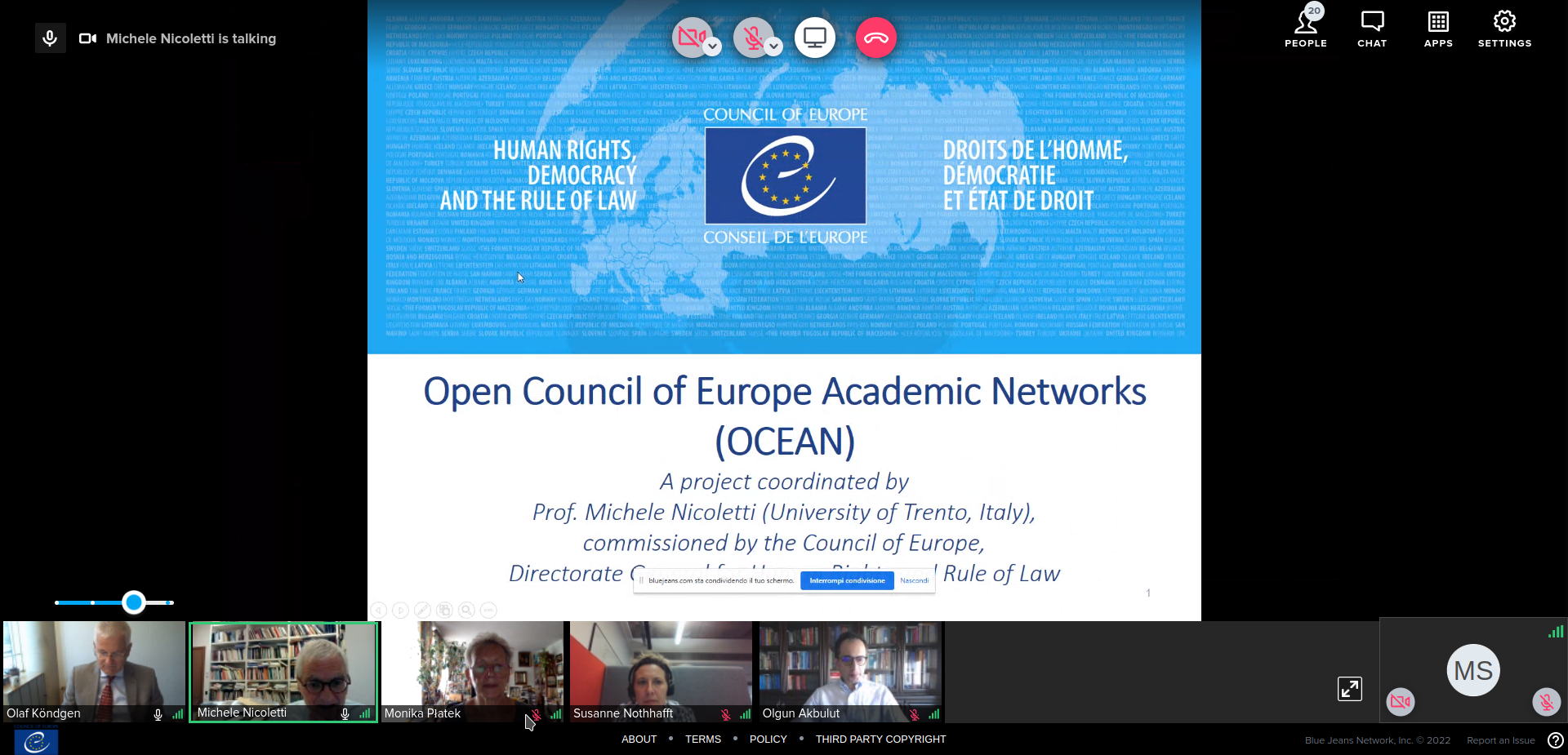Підготовча зустріч та мозковий штурм Відкритих академічних мереж Ради Європи «OCEAN і Стамбульська конвенція: національні мережі та поза ними» почались сьогодні

Заяву від України про поточний статус Стамбульської конвенції в Україні з фокусом на науковій роботі, співпраці та мережуванні на національному рівні підготували експрертки Київського інституту гендерних досліджень Юлія СТРЕБКОВА, Світлана БАБЕНКО та Марфа СКОРИК.
Statement on the current status of the Istanbul Convention in Ukraine, with an emphasis on the academic dialog and cooperation at the national level
-
Istanbul Convention in Ukraine was ratified recently and under very great pressure. Its ratification is the result of the efforts of local activist groups (coordinated by NGO Insight, the LGBTI organization) and donor organizations). There were LGBTI representatives who prepared both petitions to the president for its first and second ratification, and also organized women's marches for its ratification. Some deputy groups were also in favor of its ratification, in particular MFO - factional deputy association "Equal Opportunities".
-
The Ukrainian Parliament - the Verkhovna Rada of Ukraine ratified the "Council of Europe Convention on preventing violence against women and domestic violence and combating these phenomena" - the "Istanbul Convention" two and a half weeks ago, on June 20, 2022.
-
In general, the Istanbul Convention was submitted to the Parliament of Ukraine several times, and was rejected under the pressure of anti-rights quasi-religious groups (called “anti-gender movements”), as well as representatives of real churches united in VTSIRO - the All-Ukrainian Council of Churches and Religious Organizations.
-
VTCIRO's position was unequivocal: it referred to the removal of "the word "gender" and any of its derivatives from national legislation, including the future law on the ratification of the Istanbul Convention, and #протидія гендерній ідеології (counteraction to gender ideology) is their permanent hashtag. Their special protest was caused by the terms "gender-based violence" and "gender identity" (see the example).
-
VTSIRO actions were not limited to statements and discussions. They supported the legislative strategy to combat domestic violence in Ukraine; and the adoption of broad national legislation on these issues (such as Law of Ukraine No. 2229), in order not to adopt the corresponding international one (the Istanbul Convention). And this strategy, as of now, has been successfully implemented: the state policy of gender mainstreaming is in some places simply replaced by the policy of combating domestic violence.
-
This was done in order to 1) exclude the broader concept of gender-based violence from the Ukrainian legislative field; 2) reduce state policy to countering gender-based violence exclusively in the private sphere. (Ukrainian trade unions faced the consequences of the latter when last year they launched a national campaign for the ratification of the ILO Convention 190 on ending sexual harassment at the workplace, which turned out to be unsuccessful).
-
In fact, this is the point where we are now in Ukraine.
-
The academic sector in Ukraine mostly remained neutral regarding these discussions and the events themselves. The exception is representatives of jurisprudence: most of the works of the academic sector are devoted to novelties in Ukrainian legislation, which will be caused by the adoption of the Istanbul Convention.
- Until recently, it did not join the heated debates about the meaning of the word "gender" initiated by quasi-religious movements and other interested parties. This is due to the lack of gender studies in the Ukrainian academic segment in general. (The basic Gender Equality Glossary and Thesaurus of the European Institute for Gender Equality (EIGR) was translated into Ukrainian by civil activists together with the office of the Government Commissioner for Gender Equality Policy, although this is a task for the academic sector).
- Academic work on the Istanbul Convention has also recently been started by scholars of the MA program Gender Studies at the Taras Shevchenko National University of Kyiv. In 2021, they conducted a research "Media discourse on the prevention of violence against women in the context of the ratification of the Istanbul Convention."
Текст українською доступний за посиланням.




